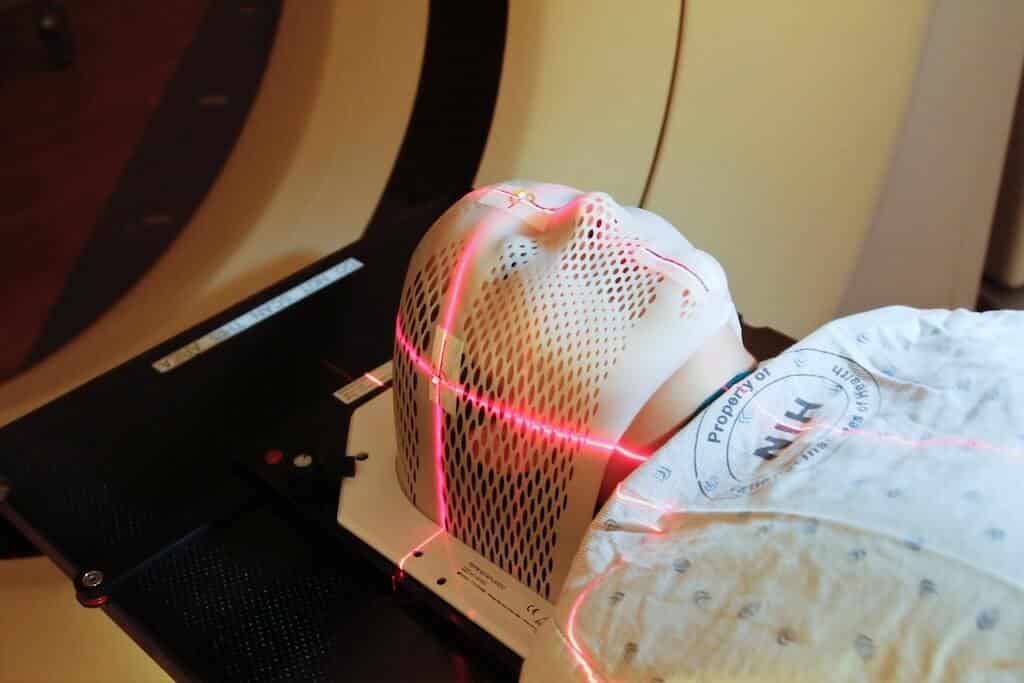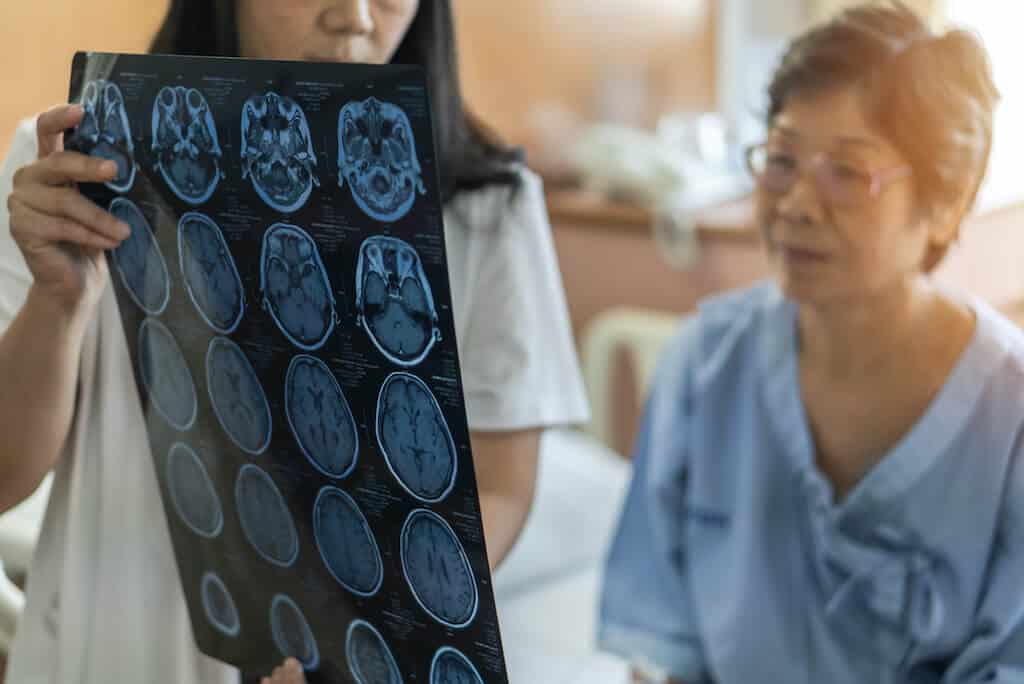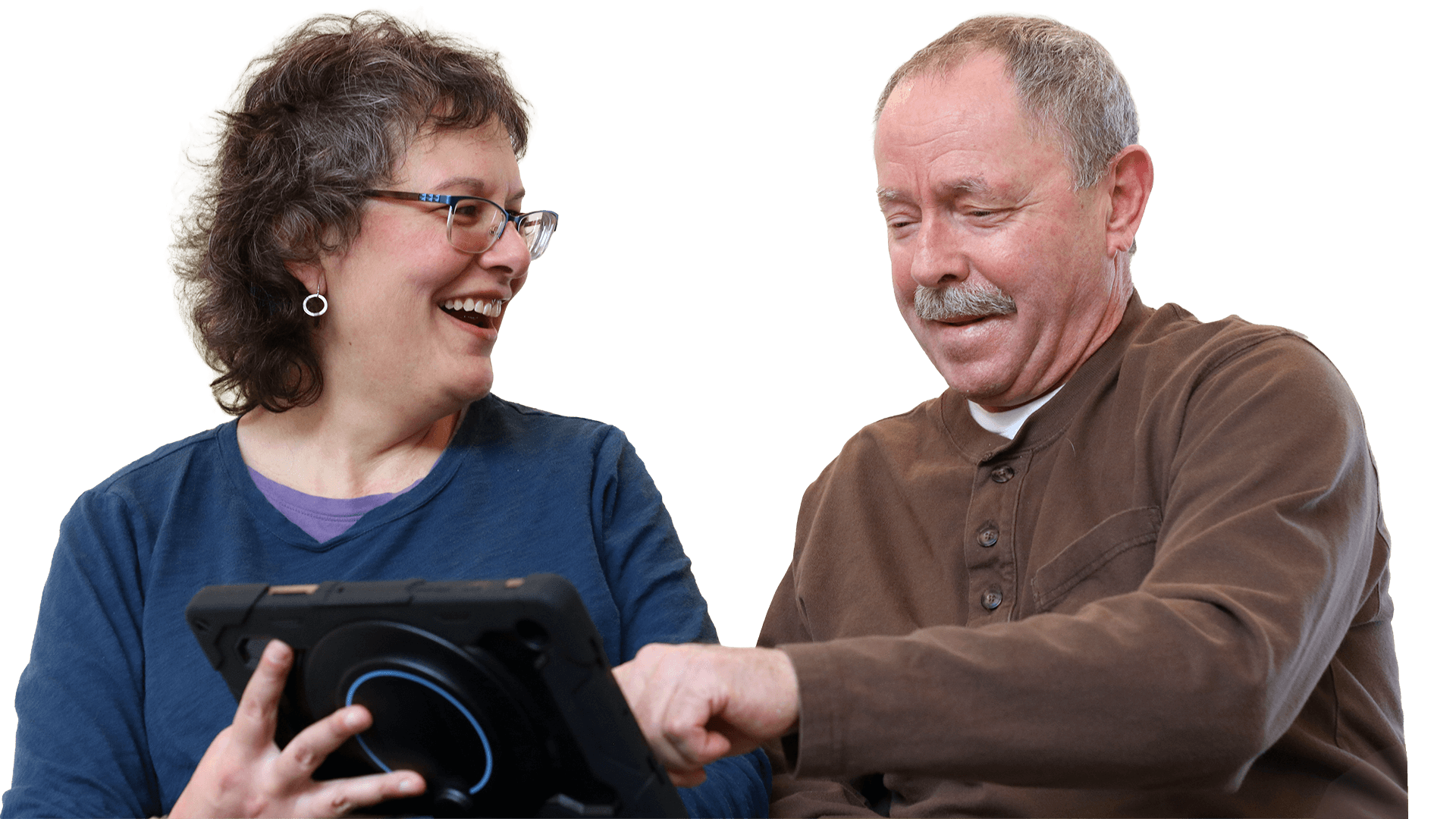
Even though aphasia affects millions of Americans, most people have not heard of it, at least by name. The acquired communication disorder affects a person’s ability to process, use, and/or understand language. If that description of aphasia sounds similar to what you know about those who have had a stroke, that’s because it’s the same thing. The most common cause of aphasia is stroke. But stroke isn’t the only cause of aphasia. Here, we’ll take a look at the more common causes of aphasia in adults, and the nuances of each.
Aphasia From Stroke
As mentioned, stroke is the most common cause of aphasia. Approximately 1 in 3 people who have strokes acquire aphasia. A stroke occurs when the blood supply to part of the brain is interrupted through a blockage or rupture. This prevents brain tissue from getting the necessary nutrients and oxygen, causing brain cells to die.
Stroke can lead to different types of aphasia depending on where the damage occurs in the brain. Wernicke’s aphasia can present as saying words that don’t make sense, using the wrong words, and putting together a series of meaningless words to form a nonsensical sentence. Broca’s aphasia is associated with difficulty forming and/or understanding sentences, leaving words out of sentences, and mixing up words. Global aphasia might present as difficulty understanding and/or forming words and sentences.
Rehabilitation and recovery following a stroke typically begins within days. According to the CDC, recovery from stroke differs for everyone. It can take weeks, months, or even years. Some recover completely, while others have long-term disabilities. Aphasia recovery is similar in its variability. What sets aphasia due to stroke apart from other causes isn’t so much how it presents, but rather the other health complications of stroke. Stroke can cause paralysis, memory loss, vision loss, and behavioral changes. Each of these can play a role in the aphasia recovery process.
Aphasia From Brain Injury
Traumatic brain injury (TBI) is a common cause of aphasia not caused by stroke. Brain injury can occur when there is a sudden blow or jolt to the head, or when there is a penetrating injury to the skull. Aphasia that occurs after TBI is often very similar to aphasia that results from a stroke.
One of the primary differences, however, is that those who have had a TBI are more likely to have difficulties with appropriate communication in social situations. The person might not be able to stay on topic or take turns in conversation.
Additionally, TBI can lead to headaches, nausea, seizures, and other physical effects. Cognitive impairments can occur as well, such as a decreased attention span, deficient memory, or difficulties with problem-solving. The effects of TBI vary significantly with severity and location of the damage. Speech-language pathologists (SLPs) can work with people who have aphasia as a result of TBI. They can also work on strategies addressing the cognitive changes that have occurred.
Aphasia From Brain Tumor
Although brain tumors are not as common as strokes, about 30-50% of people with brain tumors experience aphasia. This is higher than the rate of people who experience aphasia following a stroke. As with aphasia from other causes, the specific impairments will vary from person to person. Location, size, and grade of the tumor all impact the impairments. Typically, aphasia due to brain tumor presents like aphasia due to stroke, though it is more likely to be short-term and more mild than post-stroke aphasia.
One unique impact of a slow-growing brain tumor is how it demonstrates the brain’s neuroplasticity — its ability to reorganize itself in response to the tumor. This could mean that if the tumor is impacting a language center, the brain can shift language processing to another part of the brain.
Aphasia From Brain Surgery
Aphasia after brain surgery is not unheard of. Fortunately, the language centers of the brain are “mappable,” so surgeons are careful to protect those regions. Because of this, aphasia as a result of brain surgery is more likely to be short-term as it is not due to damage of the language centers. The exact type of impairment depends on the exact location in the brain the surgery occurred.
People who have had brain surgery who do experience long-term impairments usually have mild anomic aphasia. This means their only significant impairment is in word-finding and naming objects. Most people are able to communicate without a significant difficulty.
Aphasia From Dementia
Primary progressive aphasia, or PPA, is a neurological condition and type of dementia where the speech and language parts of the brain are slowly damaged over time. While on any given day the symptoms might be similar to those of aphasia from stroke or TBI, there is a significant difference. Rather than occurring suddenly, a person with PPA can experience a gradual loss of their ability to speak, read, write, or comprehend what others say as the condition progresses. Even though PPA is a progressive impairment, SLPs can still work with people with PPA to identify strategies to make communication easier as the disease progresses.
About Contributor
Lingraphica helps people with speech and language impairments improve their communication, speech, and quality of life. Try a Lingraphica AAC device for free.













